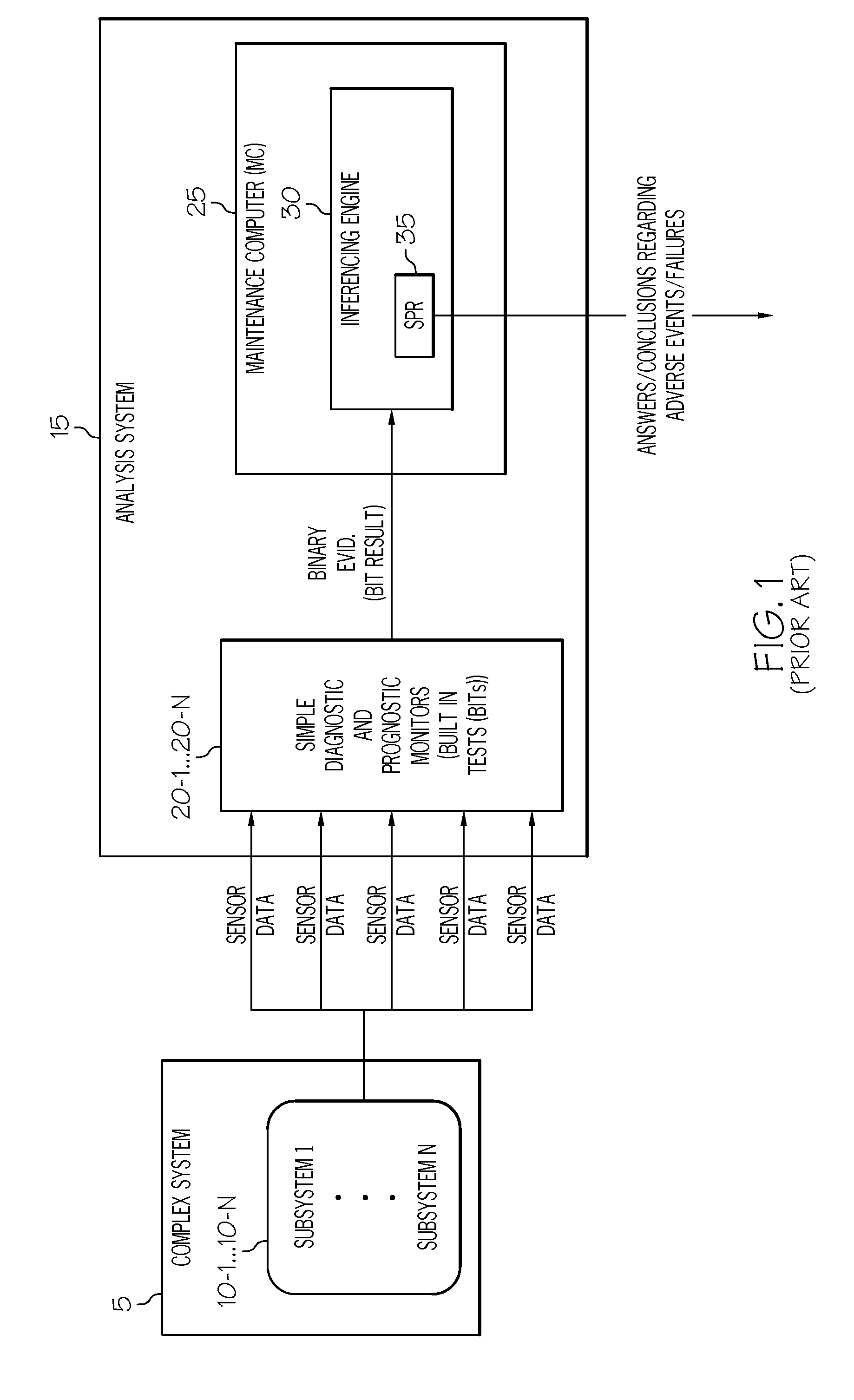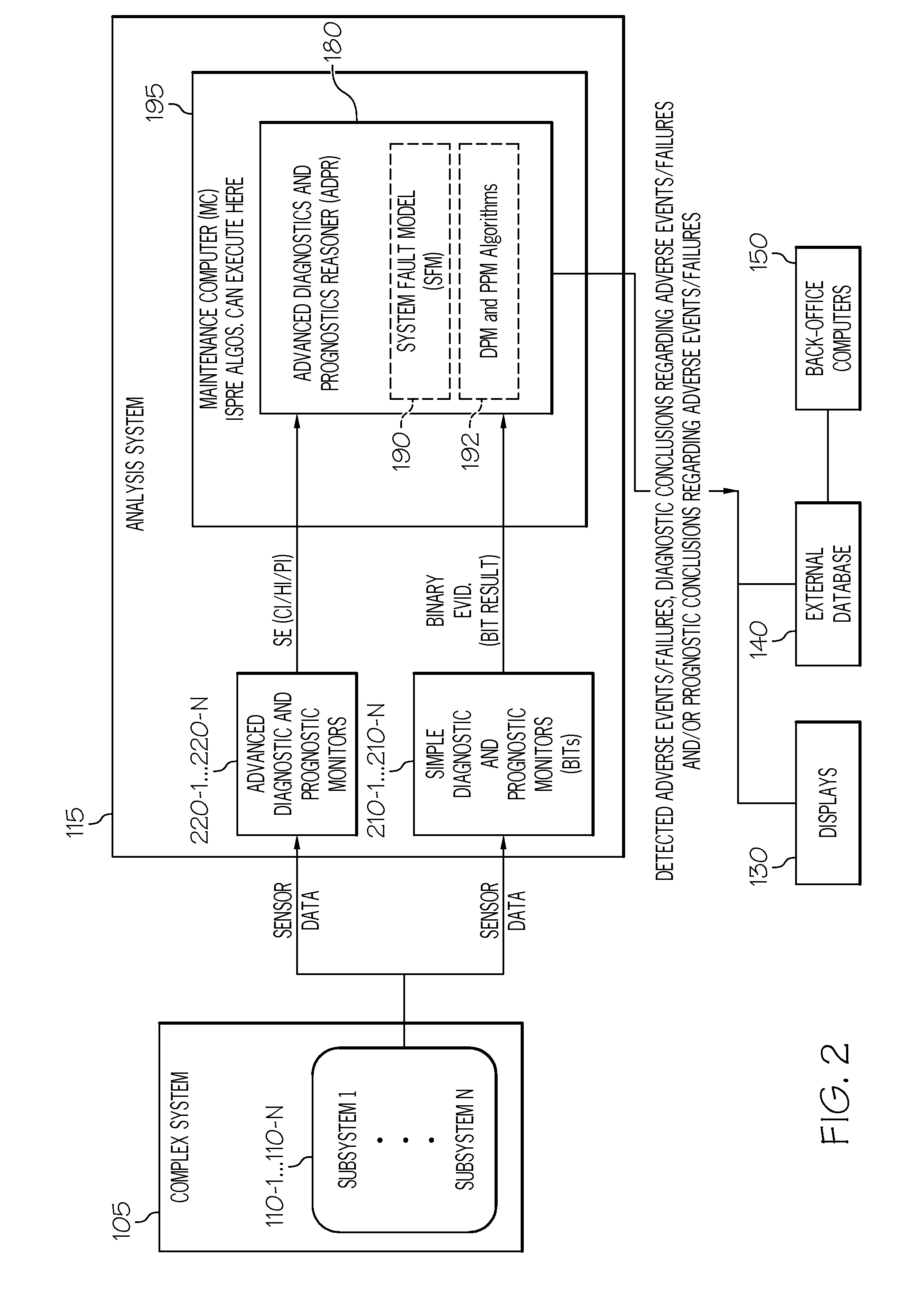Methods systems and apparatus for analyzing complex systems via prognostic reasoning
a technology of prognostic reasoning and system analysis, applied in the direction of testing/monitoring control systems, navigation instruments, instruments, etc., can solve the problem that the module b>35/b> does not normally provide optimal support for diagnostics and prognostics pertaining to the complex system or its subsystems
- Summary
- Abstract
- Description
- Claims
- Application Information
AI Technical Summary
Benefits of technology
Problems solved by technology
Method used
Image
Examples
Embodiment Construction
[0023]The following detailed description is merely exemplary in nature and is not intended to limit the invention or the application and uses of the invention. As used herein, the word “exemplary” means “serving as an example, instance, or illustration.” Any embodiment described herein as “exemplary” is not necessarily to be construed as preferred or advantageous over other embodiments. Furthermore, there is no intention to be bound by any theory presented in the preceding background or the following detailed description.
[0024]Overview
[0025]One drawback of the analysis system 15 described above with reference to FIG. 1 is that the SDPMs 20 used to interpret sensor data each generate simple binary evidence (i.e., BIT results) only. However, in many cases, simple binary evidence is not good enough to identify certain adverse events or failures in the complex system 5 or one of its sub-systems 10. For example, simple binary evidence is insufficient to identify “complex adverse events” ...
PUM
 Login to View More
Login to View More Abstract
Description
Claims
Application Information
 Login to View More
Login to View More - R&D
- Intellectual Property
- Life Sciences
- Materials
- Tech Scout
- Unparalleled Data Quality
- Higher Quality Content
- 60% Fewer Hallucinations
Browse by: Latest US Patents, China's latest patents, Technical Efficacy Thesaurus, Application Domain, Technology Topic, Popular Technical Reports.
© 2025 PatSnap. All rights reserved.Legal|Privacy policy|Modern Slavery Act Transparency Statement|Sitemap|About US| Contact US: help@patsnap.com



